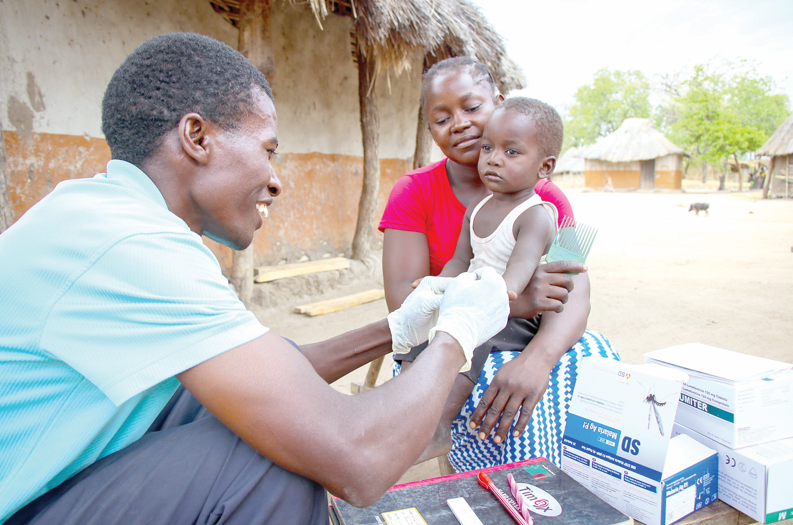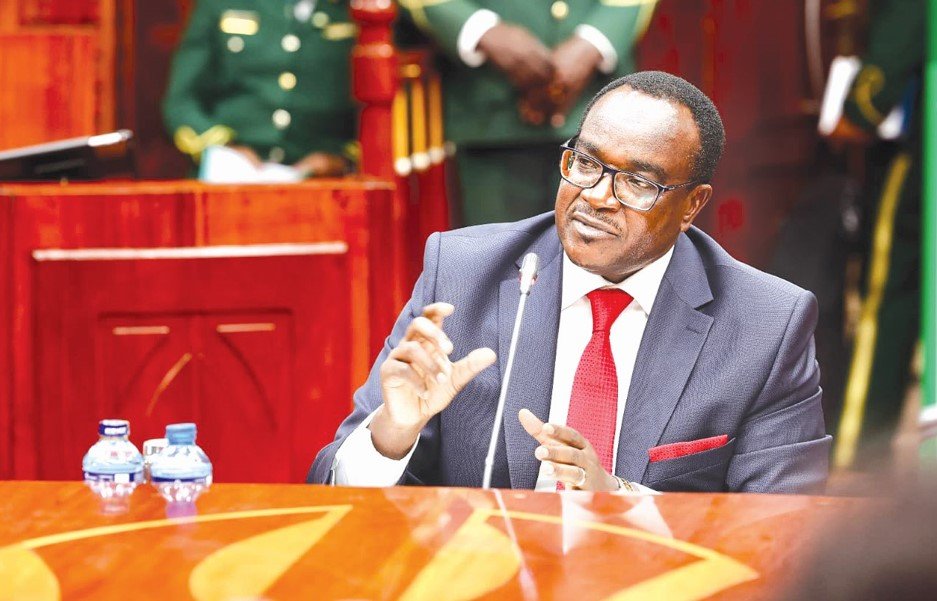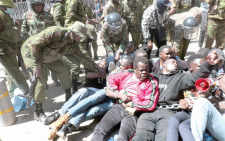Recognising and sustaining the value of community health workers

The role of community health workers in our society cannot be wished away if Kenya is to achieve its ambitious Universal Health Coverage (UHC) goal.
But despite their immense contribution towards improvement of health services, especially in areas unreachable by health workers, the plight of this critical group of health intermediaries has been ignored for a long time.
Recently, President William Ruto acknowledged the critical component of the Community Health Voluteers (CHV) on delivery of health services in the community, such as disease prevention, maternal and child health, among others.
The president further went ahead to announce that the CHVs will be referred to as community health promoters.
Ruto who made the announcement after a meeting with Council of Governors further said CHVs will be provided with standardised stipends to ease their economic burden, as well as provided with kits to enable them deliver their services more effectively.
But as the country’s top leadership made these “nice promises”, history has made the majority of the CHVs skeptical on whether these promises will be fulfilled.
For years, similar promises to invest on the CHVs have been made by leaders, with these promises remaining just “mere declarations”.
Bernard Mutachi has been a CHV since 2012, and served the community of Raila Estate slums and attached to Langata Health Centre.
For more than 10 years of service, he has witnessed the circus of promises made every year, which have remained unfulfilled.
His typical day starts with making rounds in the community, especially visiting those who have been sick for a while as he monitors their condition and recommends further action.
Like all the CHVs, Mutachi has 100 homes in the informal settlement that he is mandated with monitoring for any health issues and reporting to the centre he is attached to every month.
This voluntary work has made his life and days unpredictable as his services have no time limit and rarely allow him to engage in other money-making activities.
“Sometimes, I may be sleeping at night and suddenly I am woken up to attend to a medical emergency, including taking a sick person to hospital,” he says.
Dependable, but broke
His day-to-day duties as a CHV include visiting sick persons and making referrals when necessary, follow-up their progress after being discharged, and identifying patients who have defaulted from taking their medicine.
Other duties, include alerting the health officials on possible disease outbreaks, such as cholera, as well as sensitising the communities on health issues, such as outbreaks.
Mutachi says they are also mandated with sensitising expectant women and mothers on the importance of going for pre and post-natal clinics, immunisation among other maternal issues with a common goal of reducing maternal mortality rate in the slum.
“It is my duty to ensure people living in these 100 households have key information on some of the health issues that are likely to affect them. Also, every month, I’m expected to submit a report detailing any health concerns or issues in my community,” he says.
His close interactions with the community has built an exceptional relationship between him and the people, making him the first person to be called in when a health emergency arises.
With such heavy duties lying on his shoulders, most of his time is dedicated to this voluntary work, which until recently paid him nothing.
He says his family depended on meager payments he made partly working as an electrician.
“This work cannot allow someone to be employed anywhere fulltime and, therefore, I just took the menial job so as to sustain my family,” says the father of six.
Mutachi shares; “For the last 11 years, I have been a CHV, the love for my community is what has been holding me, because no one paid or appreciated our work. I have done this job wholeheartedly after all, it is my community that will suffer if I quit,” he says.
Even though the Nairobi County government has began giving them a stipend of Sh3,500, an amount that does not equate to the work they do in their areas, which are mostly hard to reach.
Aside from the meager pay, these crucial community health-links are not short of other challenges, such as attending to their patients while not fully equipped with the right gear, such as gloves to protect themselves. “Despite the many challenges and risks we face in our line of duty, such as the risk of being infected for lacking basic protective gear, we strive to do our work diligently. I make sure my community’s health needs are fully met,” he says.
With most of his time dedicated to voluntary work, Mutachi says it is time the government invested in CHVs if it was to achieve universal healthcare.
Kenya’s capital, Nairobi, has close to 7,460 community health workers providing health services responses to more than 1,000 health centres across all the 85 wards in the city with 60 per cent of people who benefit from CHVs services being residents residing in the informal settlements where access to most needed health services remains a challenge.
Various studies from Sub-Saharan Africa illustrate that, where CHVs are actively engaged, cases of maternal and neonatal mortality reduced and there was recording of positive health behaviours.
These studies show access to pre and post-natal services enhanced under the guardianship of the CHVs in their locality.
The World Health Organisation (WHO) further cites CHVs involvement in the containment and control of Ebola Virus Disease (EVD ) outbreak in Guinea, Liberia and Sierra Leone in 2014–2015.
WHO says communities with functioning community health systems where Community Health Workers (CHWs) were an essential component did not only allow better access for skilled health workers to manage the EVD crisis, but also recovered more quickly.
But while various researches attribute improvement of health to CHVs, a 2021 research by Aga Khan University with a focus on CHVs based in Kilifi shows despite greater needs, CHVs face an increased workload characterised by lack of financial remuneration, poor infrastructure, lack of supervision and high levels of isolation.
There have been various proposals to reform the CHVs, but these recommendations have remained just on papers in the majority of the counties.
Dennis Mbithi, the vice president of the National Nurses Association of Kenya says Kenya has not invested in CHVs despite their role in the community.
He says the nation lacks proper structures to help the volunteers deliver their mandate. “Our CHVs are not motivated, because they are rarely remunerated. They are not equipped. They are the ones dealing with communities, how do we expect them to deliver if we do not invest in them, “he says.
Remunerate and equip
He says despite being overlooked by the government, CHWs play a major role in their communities, such as conducting promotive and preventive medicine, which helps in preventing diseases and evading outbreaks.
“First step is to acknowledge the work they do. The government should then pump more funds to health, which will ensure CHVs are remunerated and equipped. This is the only way Kenya will achieve the UHC targets,” he notes.
Nairobi County is already taking a lead in improving the lives of its health volunteers through its Health Reforms Taskforce Report and the Health Wellness and Nutrition Sector County Integrated Development Plan for 2023-2027.
Among the recommendations proposed by the taskforce, include operationalising the CHV stipend and paying the outstanding stipends, increase the number of community health assistants, which will positively affect the CHV supervision and quality of services they provide, as well as strengthening the community health referral system by enhancing the existing accountability mechanisms, linkages, and outreach services.












